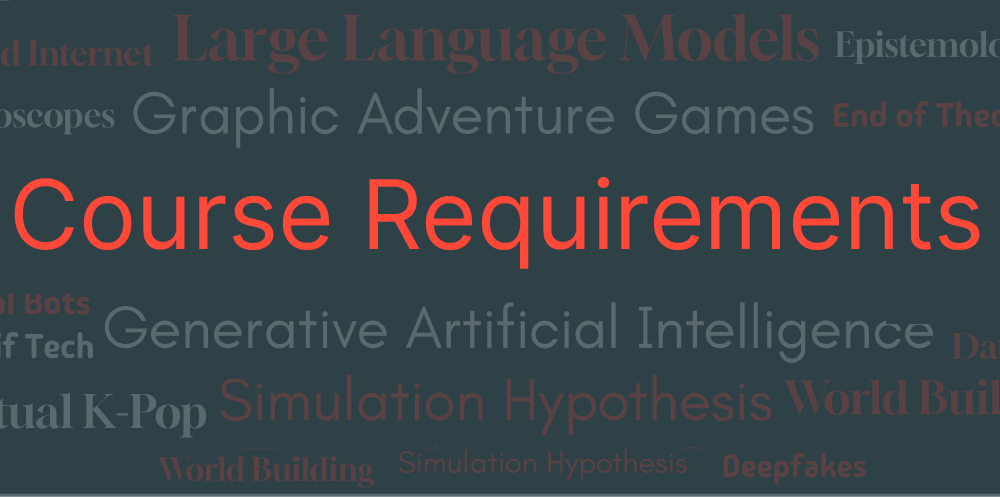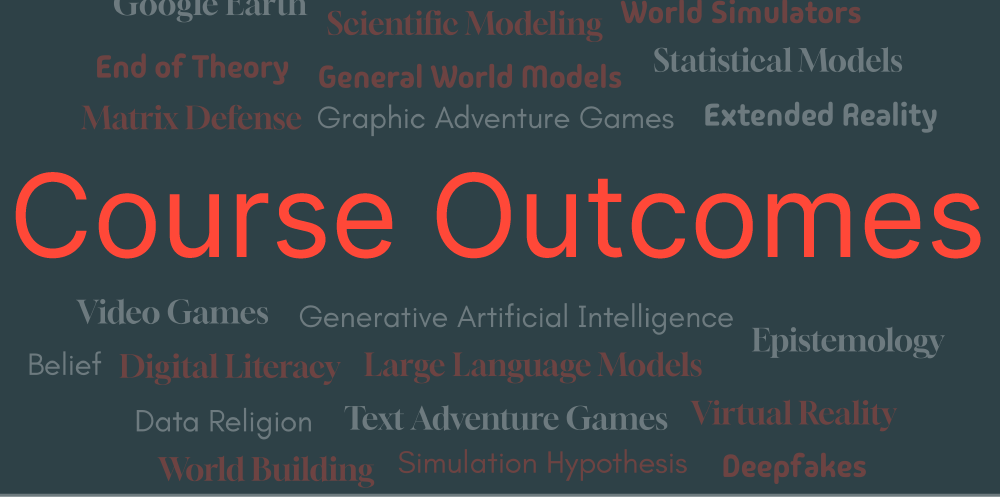Simulation and Society [TEST]
Simulation and Society
CORE 499 (63580)
Spring 2025
2 Units
Thursdays 1:00PM-2:50PM
LVL 301
Dr. Curtis Fletcher
Some technological developments can appear near totalistic in the way they remake how we think—they permeate everything, including deeply rooted perspectives about knowledge, politics, society, and even reality. Simulation is one such set of technologies. Simulation here refers to a broad range of settings: the temporary virtual reality and gaming environments into which we voluntarily enter; the app-based or online experiences which we increasingly favor over real-world interactions; the artificial, AI-media and bot-dominated online spaces into which we may soon find ourselves; and the fully simulated world in which we may unknowingly live.
To explore these shifts, we will define ‘simulation’ as a system or environment that acts as a simplified surrogate for a more complex real-world counterpart. For example, virtual reality simplifies real environments to provide streamlined visual representations; AI companions mimic human behavior without lived experience; and generative AI predicts patterns in order to simulate language, images, and video without actually understanding meaning or the laws of physics.
This course will provide students with the opportunity to use the technologies of extended reality (XR) and AI-powered simulation as a lens through which to explore the shifting nature of human values, interactions, and attitudes in the early 21st century. In doing so, the course will engage students in a comprehensive, interdisciplinary study of virtual worlds, preparing them to engage with our increasingly simulated digital spaces in critical and informed ways.
Students in the course will also take advantage of technologies available at the Ahmanson Lab with support from the professor and dedicated Lab staff. Students will have the chance to explore and use XR technologies, generative AI tools, bot systems, and a brain-computer interface, gaining knowledge and hands-on experience while engaging with the themes of the course.
Through readings, discussions, and hands-on exploration of relevant technologies, students will engage with the following kinds of questions:
- How have virtual worlds evolved, from their origins in early science fiction, mechanical simulations, stereoscopic technologies, and early film, to the immersive digital environments of today? And how have the altered how we represent reality?
- What philosophical questions are raised by virtual reality and immersive environments, and how does the Simulation Hypothesis challenge our understanding of reality?
- How does the increasing simulation of human behavior through data models affect political and consumer manipulation? What are the implications of the rise of artificial identities and AI-generated content for our sense of authenticity and trust in digital spaces?
- What strategies can we develop to critically navigate and verify information in increasingly automated and simulated digital spaces?
Building a Class website

See the Grading Breakdown for CORE 499

See the Learning Objectives for CORE 499